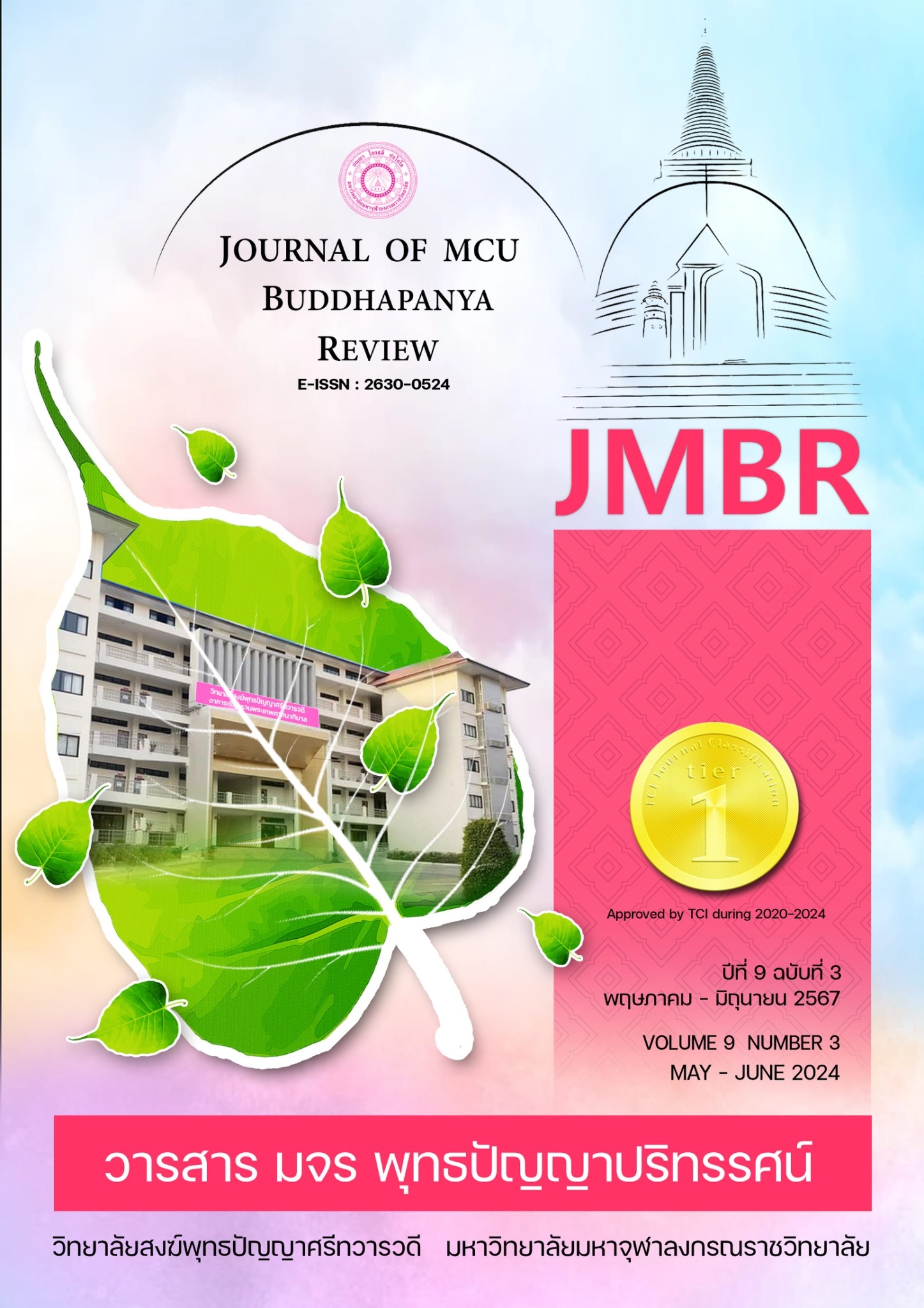BAMBOO DIPLOMACY: CRUMBLING STRATEGY AMID THE SINO-US COMPETITION
คำสำคัญ:
Bamboo Diplomacy, Sino-US Competition, National Insecurityบทคัดย่อ
The diplomatic tradition of Thailand is known as bamboo diplomacy. This doctrine has been employed in the making of Thai foreign policy because it is a mechanism that helps protect the country’s sovereignty. The rise of China and the US foreign policy, aiming to counter it, have challenged the discipline. However, the study argues that Thailand’s bamboo diplomacy is not challenged by the hegemonic competition. Thailand was able to create equilibrium of relations with Washington and Beijing to maximize leverage gained from bilateral cooperation with both powers. However, the doctrine is not sustainable. The intensified major power competition could break the bamboo.
เอกสารอ้างอิง
Jittipat (2022) introduces the discourse of bamboo diplomacy as an attempt to détente. See Jittipat Poonkham. (2022). A Genealogy of Bamboo Diplomacy: The Politics of Thai Détente with Russia and China. Australia: ANS Press.
Glaser, S., B. (2012). Chinese Foreign Policy Research Institutes and the Practice of Influence. In G. Rozman (Ed.), China’s Foreign Policy: Who Makes It, and How Is It Made? (pp. 87-124). New York: Palgrave Macmillan.
Anuson Chinvanno. (2015). “Rise of China”: A Perceptual Challenge for Thailand. RJSH, 2(2), 13-18.
Kurlantzick, J. (2015). The Pivot in Southeast Asia: Balancing Interests and Values. Council on Foreign Relations.
Zawacki, B. (2017). Thailand: Shifting Ground between the US and a Rising China. London: Zed Books Ltd.
Bader, J. (2021). China and the Asian Infrastructure Investment Bank: Undermining Hegemony through Goods Substitution? In M. Andersen, A. Cooley & D. Nexon (Eds.), Undermining American Hegemony: Goods Substitution in World Politics (pp.88-103). Cambridge: Cambridge University Press.
Bader, J. (2021). China and the Asian Infrastructure Investment Bank: Undermining Hegemony through Goods Substitution? In M. Andersen, A. Cooley & D. Nexon (Eds.), Undermining American Hegemony: Goods Substitution in World Politics (pp.88-103). Cambridge: Cambridge University Press.
Kuik, C. (2016). China’s “Militarization” in the South China Sea: Three Target Audiences. East Asian Policy, 15-24.
Panitan Wattanayagorn. (1998). Thailand. In Singh, P., R (Ed.), Arms Procurement Decision Making Volume 1: China, India, Israel, Japan, South Korea and Thailand (pp.211-241). Oxford: Oxford University Press.
Chanlett-Avery, E., Dolven, B. & Mackey, W. (2015). Thailand: Background and U.S. Relations. CIS Report.
The Board of Investment of Thailand (2013). Phawa Lanlongthun Doitrong Chak Chin Nai Prathet Thai 2555 [Chinese Investment to Thailand 2012]. https://www.boi.go.th/upload/content/PRC%202012_91241.pdf.
Zhao, H. (2018). China-Japan Compete for Infrastructure Investment in Southeast Asia: Geopolitical Rivalry or Healthy Competition?. Journal of Contemporary China.
Kitti Prasirtsuk & Tow, T., W. (2015). A reluctant ally?. In W. T., Tow & D. Stuart (Eds.), The New US Strategy towards Asia. Oxon: Routledge.
Bangkok Post (2012). Thaksin US visa ‘unrelated to Nasa’s U-Tapao request’. https://www.bangkokpost.com/thailand/politics/301157/thaksin-us-visa-unrelated-to-nasa-u-tapao-request.
Chulacheeb Chinwanno. (2009). Rising China and Thailand’s Policy of Strategic Engagement. In J. Tsunekawa (Ed.), The Rise of China: Responses from Southeast Asia and Japan (pp. 81-110). Tokyo: The National Institute for Defense Studies.
Brunnstrom, D. & Mohammed, A. (2014). Thai coup draws swift condemnation; U.S. says reviewing aid. https://www.reuters.com/article/us-thailand-protest-reaction-idUSBREA4L0ZH20140522.
Jory, P. (2014). China is a big winner from Thailand’s coup. East Asia Forum. https://www.eastasiaforum.org/2014/06/18/china-is-a-big-winner-from-thailands-coup.
Pavin Chachavalpongpun (2016). Thailand in Sino-U.S. Rivalry. At the Crossroads of the Thai Internal Conflict. Occasional Paper, 29.
AFP.(2014). ‘Scaled-down’ Cobra Gold a go. Bangkok Post. https://www.bangkokpost.com/
Storey, I. (2019). Thailand’s Military Relations with China: Moving from Strength to Strength. Perspective, 63.
Wassana Nanuam & Patsara Jikkham (2015). Thailand, China bolster military ties as US relations splinter. https://www.bangkokpost.com/thailand/general/468332/thailand-china-bolster-military-ties-as-us-relations-splinter#group=nogroup&photo=0.
Ikome, N., F. (2007). GOOD COUPS AND BAD COUPS: The limits of the African Union’s injunction on unconstitutional changes of power in Africa. Institute for Global Dialogue.
The Editors (2017). Thailand’s Junta Sees ‘One Belt, One Road’ as Potential Source of Legitimacy’. World Politics Review. https://www.worldpoliticsreview.com/thailand-s-junta-sees-one-belt-one-road-as-potential-source-of-legitimacy/
Fels, E. (2016). Shifting Power in Asia-Pacific? The Rise of China, Sino-US Competition and Regional Middle Power Allegiance. Switzerland: Springer International Publishing.
Li, M. & Gong, X. (2020). China’s Belt and Road Initiative: How Will It Change the Regional Order in Southeast Asia?. In H. Feng & K. He (Eds.), China’s Challenge and International Order Transition: Beyond “Thucydides’s Trap” (pp.117-140). USA: University of Michigan Press.
Kavi Chongkittavorn (2019). The Thailand-U.S. Defense Alliance in U.S.-Indo-Pacific Strategy. Asia Pacific Issues, 137.
Pongphisoot Busbarat (2017). Shopping Diplomacy: The Thai Prime Minister’s Visit to the United States and its Implication for Thai-US Relations. Perspective, 78.
Jakusne, H., E. & Muranyi, E. (2022). What Is Vaccine Diplomacy?. Acta Univ. Sapientiae, Communicatio, 9, 79-89.
Kavi Chongkittavorn (2021). Thailand: A Battleground for Vaccine Diplomacy, Points of View.
Jittipat Poonkham (2023). Thailand’s Bamboo Diplomacy in the Age of Geopolitical Rivalry: Bending or Gone with the Wind?, CSCAP Regional Security Outlook 2023, 43-46.
ดาวน์โหลด
เผยแพร่แล้ว
รูปแบบการอ้างอิง
ฉบับ
ประเภทบทความ
สัญญาอนุญาต
ลิขสิทธิ์ (c) 2024 วารสาร มจร พุทธปัญญาปริทรรศน์

อนุญาตภายใต้เงื่อนไข Creative Commons Attribution-NonCommercial-NoDerivatives 4.0 International License.



